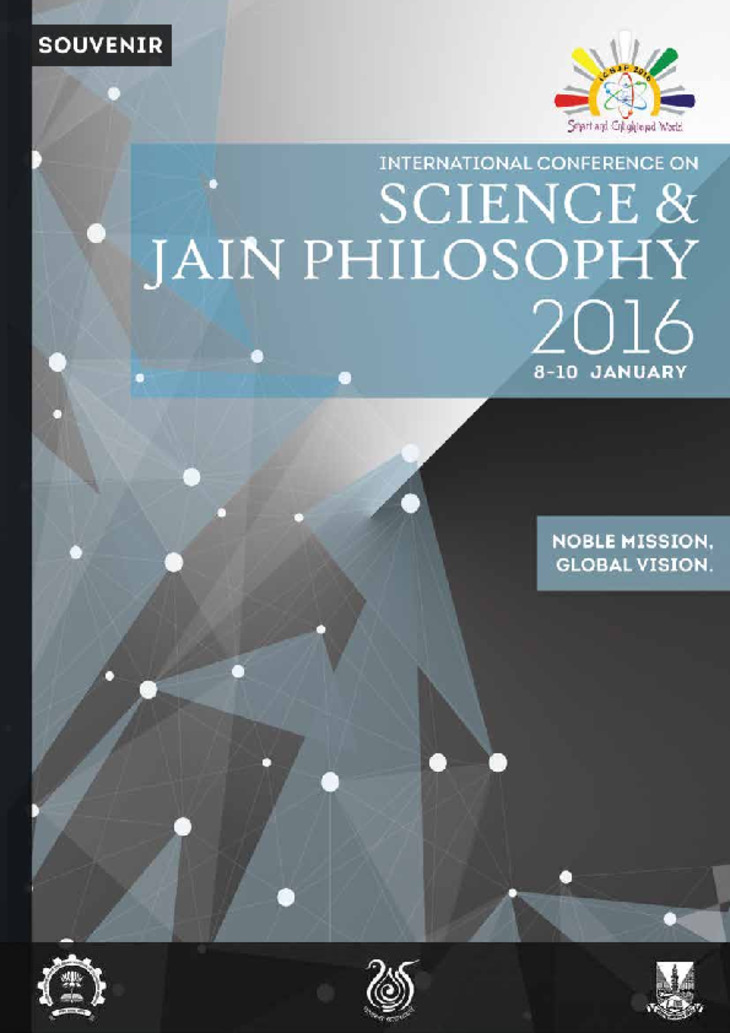
International Conference on Science and Jain Philosophy
 Dr. Dipak C. Jain, Ph.D, M.Sc., B.Sc., is a globally recognized marketing and innovation expert and the Director of the Sasin Graduate Institute, Bangkok, John Deere & Company (USA), Northern Trust Corporation (USA), Global Logistics Properties (Singapore) and Reliance Industries (India).
Dr. Dipak C. Jain, Ph.D, M.Sc., B.Sc., is a globally recognized marketing and innovation expert and the Director of the Sasin Graduate Institute, Bangkok, John Deere & Company (USA), Northern Trust Corporation (USA), Global Logistics Properties (Singapore) and Reliance Industries (India).
In the past decade, the world has experienced dramatic economic upheaval. The economic "tsunami" that swept through the world's financial markets highlighted weaknesses in the global banking system, revealing this bedrock of the modern marketplace to be more fragile than most suspected. Problems arose when widespread risk management processes failed. The crisis then spread quickly because of the very quality that otherwise lends strength to this network: the interconnectedness of these financial institutions. While the meltdown was not merely the result of personal ethical lapses - other factors also played a part, including systemic incentives and complicated, sometimes poorly understood financial tools - there were too many instances where short-term focus on material gain created an environment conducive to unsustainable, and unenlightened, leadership practices.
When reflecting on the crisis - or on business ethics overall - from a Jainist perspective, it becomes clear that a number of our spiritual tenets could have helped prevent these market excesses.
In these challenging times, the core Jain principles, such as non-violence (ahimsa), non-absolutism (anekanta), and non-possessiveness (aparigraha), can serve as a valuable framework for each of us, and for our leaders whose actions touch millions of lives. Indeed, the world seeks enlightened leadership to address a range of global issues: economic, environmental, political and others. Because the stakes are so high, it is crucial that we each do our part to help cultivate an enlightened mind through the "three jewels" (ratnatraya) of proper faith (samyag-darsan), proper knowledge (samyak-jnan) and proper conduct (samyag-caritra).
Our challenges are many, but rather than regard these problems as evils to be ignored or avoided, we can view them as opportunities to make the right choices and contribute our talent and goodwill to create solutions. It is by courageously meeting these challenges that we progress as individuals, while also offering a significant gift to the world. For political leaders, this perspective is essential since it can result in an honest engagement with social problems. From this engagement can come beneficial policy and governance that helps others achieve their full potential. For leaders in business or education, this engagement can create material and intellectual prosperity, as well as innovations in science and technology that have broad implications for well-being. And for each of us, working in whatever way our path directs, our efforts to make a positive difference lets us cultivate merit that transforms us as human beings so that we can be our best.
When we consider the problems facing us, usually the causes have their roots in ignorance. When we reduce the obvious "sparks" of anger, greed, fear, small-mindedness to their source, we find that ignorance is the fuel for these impulses. And ignorance, then, is an inability to understand the true nature of reality and our responsibility to ourselves, to our neighbors and to the world. It's bad enough when an everyday citizen displays this ignorance, but much worse when we encounter leaders who, in caring more for their own narrow interests or for the interests of a few stakeholders, use their power to betray the needs of the larger society.
Jainism, however, offers the resources and the path to reflect on what matters most and then to renew ourselves as we set upon the journey of making ourselves, and the world, better.
One helpful core Jain principle to guide leaders is anekanta, or respect for diverse views. While yesterday's "command-and-control" leadership model used authoritarian tactics to manage people, the best leaders today understand the importance of seeking a multiplicity of perspectives in a world moving ever faster and growing more complex. Because each person operates with limited knowledge, we all see the world with less-than-perfect insight. By benefiting from others' counsel, leaders not only increase the odds of making wise, holistic decisions, but they also create environments founded upon compassion and tolerance, since anekanta encourages us to see the world through the eyes of others too. In a way, this principle is the very soul of leadership. Great leaders are those who can connect with others and who inspire caring, inclusive cultures where people thrive in collaborative pursuit of organizational goals. Jainism helps a leader achieve this objective, creating value for everyone throughout the organization and beyond, into the broader community.
Clearly, this respect for diversity holds promise for many areas of modern life, and even could help resolute issues of political or religious strife. Before uttering a harsh word, even in the face of an adversary, we have the choice to pause and reflect and to imagine how that other person sees things. This may provide a platform for fruitful dialogue. On the other hand, the poorly chosen phrase, spoken in anger, can result in a lifetime of regret. Through its emphasis on "right thought," "right speech" and "right action," Jainism encourages Leaders to look beyond the immediate or the material for ways to make an enduring, significant contribution. Of course, Jain mendicants take a more austere path, but for the layperson (shravaka), the challenge is to remain engaged with the world even while seeing past the mundane illusions that can hinder our spiritual progress.
If one follows the Jain faith, it would seem crucial to conduct one's business affairs scrupulously, being as careful as some monks and nuns are, when walking, to sweep the ground before them to avoid crushing insects on the path.
Taking an even broader view, Jainism offers us a transcendent perspective on the very nature of value. While the market concerns itself with transactional value and unvarnished materialism, Jain tradition reminds us to continue our more important, long-term journey to attain moksha. Our ethical practice should support this ultimate goal, rather than ensnare us in mundane commerce. The Jain's relationship to the market, it seems, should be to regard the accumulation of material wealth as being spiritually helpful so long as this wealth is deployed in ways that create widespread social benefit. Business, like all human relationships, has the potential to create material and spiritual prosperity, but only if we pursue our work with a compassionate heart, the wellspring of all ethics.
 Dr. Dipak C. Jain
Dr. Dipak C. Jain
